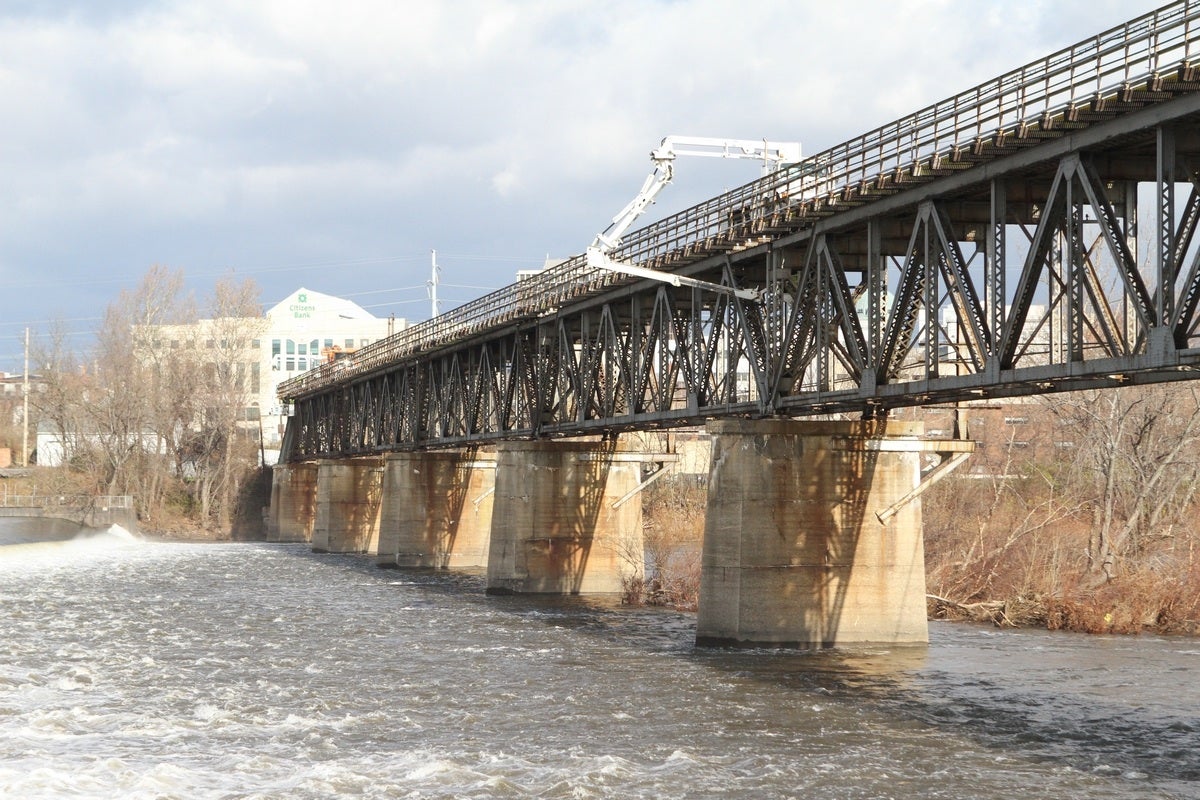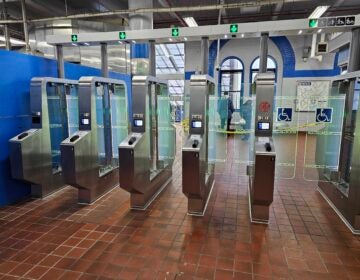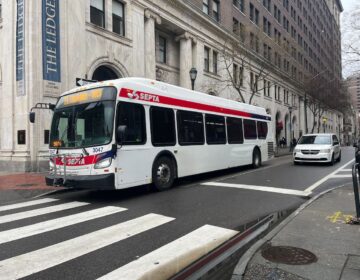SEPTA’s critical deferred project update

In January, SEPTA identified five critical deferred projects that, if it does not come up with the funds to fix, will be the first pieces of the network to close.
With the recent Econsult report calling attention to SEPTA’s financial situation and the ongoing discussion of transportation funding legislation in Harrisburg, we decided to revisit that list of critical deferred projects.
In January the list included the following:
- Crum Creek Viaduct Replacement, Media-Elwyn Line
- Bridgeport Viaduct Rehabilitation, Norristown High Speed Line
- Bridge 0.15 Replacement, Norristown High Speed Line
- Bridge 0.35 Rehabilitation, Chestnut Hill West Line
- Viaduct Rehabilitation at three locations, Media-Elwyn Line
Norristown High Speed Line
Since then, SEPTA announced that on July 8 it will close the Norristown High Speed Line between Norristown Transportation Center and Bridgeport Station to complete necessary but temporary repairs to the Bridgeport Viaduct. That portion of the line will closed for an estimated four months while crews replace the Bridgeport Viaduct’s deteriorating timbers. SEPTA will provide temporary shuttle bus service around the closure.
If, in the next couple of years, SEPTA cannot secure funding to do the remaining steel work and painting necessary on the Bridgeport Viaduct, the viaduct and that segment of the line could close indefinitely.
The upcoming timber replacement project scheduled for this summer does buy SEPTA a little more time, but SEPTA’s Deputy General Manager Jeff Knueppel said, “It’s really one of the first situations where our problems with capital funding are catching up with us.”
The Norristown High Speed Line’s Bridge 0.15 was also listed on the critical deferred projects list in January, but SEPTA has since secured funding to make necessary repairs with its in-house crews.
Chestnut Hill West and Media-Elwyn lines
Little has changed for the three other critical deferred projects on January’s list.
On the Chestnut Hill West Line, Bridge 0.35 is still in critical need of rehabilitation. That bridge, which suffers from severe corrosion, has load restrictions for certain freight and diesel trains, and Knueppel said the bridge could soon see passenger train load restrictions.
The Media-Elwyn Line’s multiple areas of concern are still on the critical deferred projects list.
“We kind of live on the edge with those viaducts,” Knueppel said. “…We’re constantly studying and inspecting to make sure they’re safe to operate, but it’s getting scarier every year to assume all four of those viaducts are going to be inservice.”
SEPTA does regular inspections of these structures and uses instruments to determine the stress levels on the steel.
“We will stay safe,” Knueppel said. “If we have to shut things down we will shut things down.”
These critical deferred projects depend on SEPTA’s capital budget, which currently stands at $308 million, compared to Washington D.C.’s $1 billion, NJ Transit’s $1.1 billion, Boston’s $800 million and Chicago’s $950 million. The fate of SEPTA’s capital budget is still up in the air as legislators in Harrisburg negotiate a new transportation funding package.
SEPTA is working to encourage legislators to approve increased transportation funding, but in the meantime, the authority has outlined a bare-bones spending plan.
“We’re investing in tomorrow,” Knueppel said. “Tomorrow’s not looking too good right now, [not] until we get our capital funds in a better position.”
WHYY is your source for fact-based, in-depth journalism and information. As a nonprofit organization, we rely on financial support from readers like you. Please give today.






